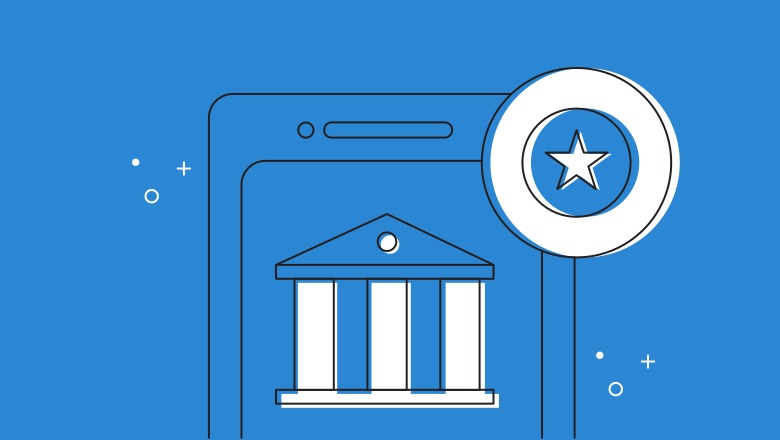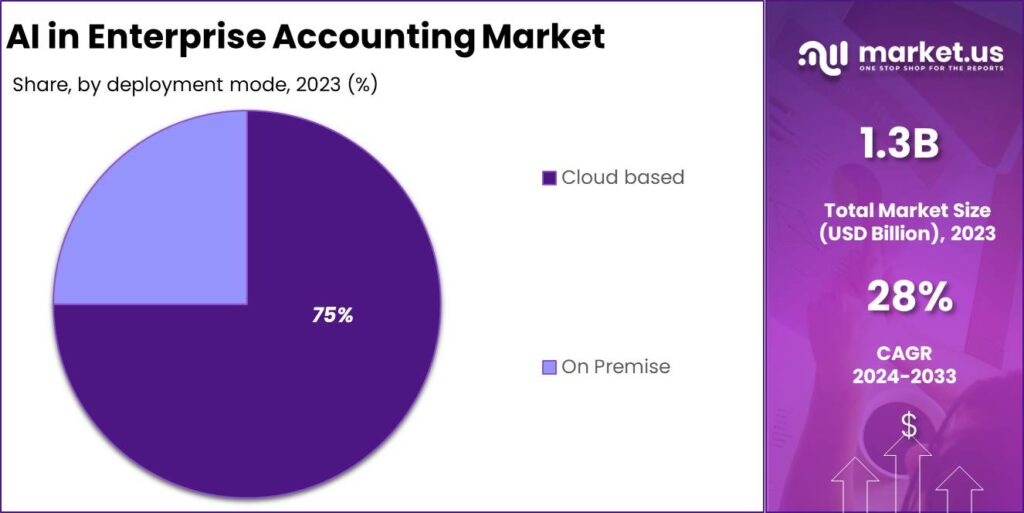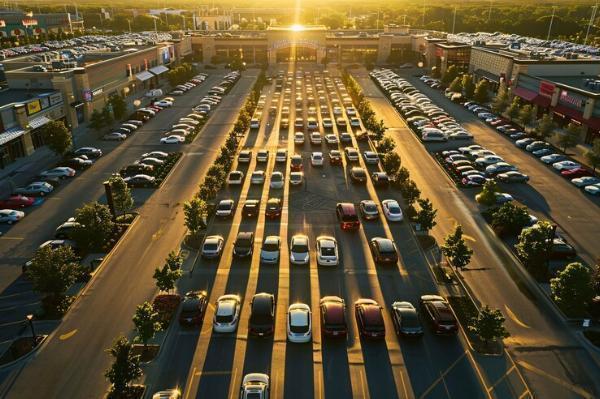Social media and politics: why it matters + 10 tips for campaigns
Like it or not, social media and politics are inseparable.
That’s because so much political discourse happens on platforms like Twitter. Over half of the US consumes political news via social.
Debates. Fundraising and fact-checking. News and results.
With social media serving as the modern-day public forum, all of the above are just a tap away for voters.
That's why the stakes are high for candidates on social media. Rather than wait for stories to publish, politicians can break their own news in real time.
The challenge? Navigating social media and politics is tricky if you're responsible for managing a public account. Below we break down how candidates can step up their social game.
How social media has transformed political campaigns
Before we get into the nitty-gritty of our tips, let's address a bigger question:
Why is social media such a staple of politics in the first place?
Social media might not be new to the public at large. However, incorporating social media in political campaigns didn't see significance until the 2008 United States presidential elections with then- candidate Barack Obama. With the power of social networking, political candidates reach wider audiences than traditional media and in real time.
As a result, a lot has changed in social media and politics since the 2020 US presidential election. Let's look at the specifics below.
More people get their news from social platforms
There's no shortage of news sources sending stories directly to our smartphones.
According to 2022 data from Pew, the top social networks for news are Twitter (53%), Facebook (44%) and Reddit (37%). Surprisingly, TikTok (33%) isn't too far behind these sources.
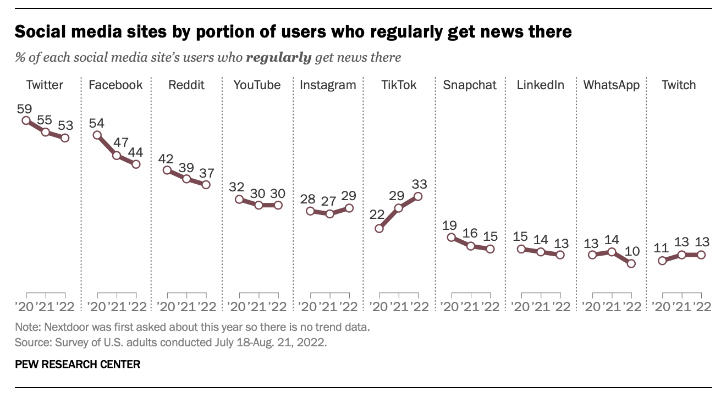
Transparency and trust versus mainstream media
Data from Gallup says 36% of citizens in the US have a 'great deal' or “fair amount” of trust in mainstream news sources. This includes cable news and print media. Only 11% of self-described Republicans (and 31% of independents) claim to trust the media.
To say that citizens have trust issues when it comes to traditional media would be an understatement.
Social media is also blurring the lines of what's considered a 'trustworthy' new source. Pew data says that adults under 30 trust news from social media about as much as traditional outlets.
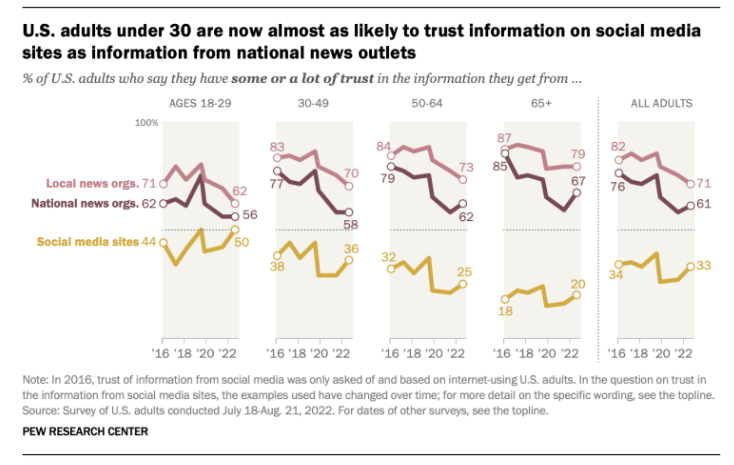
Social media is far from a perfect news source.
Still, the benefit of real-time fact-checking is a big plus for social-savvy consumers. Social platforms also provide politicians with a direct line to the public.
That means the value of social media transparency carries over to candidates. After all, they're able to speak to voters in their own words and on their own terms.
Consider also the massive reach of social media versus mainstream sources. With shrinking TV audiences, social is the biggest show in town for politicians.
People will roll their eyes at President Biden spending time with TikTok influencers this week. But this is the gag: The eight of them have 67M+ followers. By comparison, about 1.5-2.5M watch Fox, CNN or MSNBC in prime time. More from @taylorlorenz.https://t.co/jf9XNcEewP
— Steven Overly (@StevenOverly) October 27, 2022
